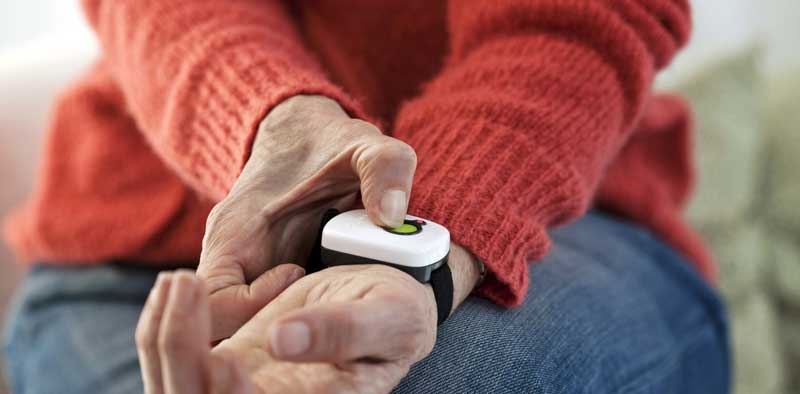)
Assistive technology in adult social care
Councils not yet tapping potential of assistive technology in adult social care
Survey of English local authorities reveals savings-focused use of telecare and other technologies can compound recipients’ isolation and loneliness
A survey of all English councils with social care responsibilities, backed up by selective interviews, found almost all deployed telecare as part of a strategy to reduce the need for care, safeguard and enhance quality of life.
Authorities, which are having to deal with rising social care demand at a time of shrinking resources, had mostly developed their approaches “unilaterally”, with only a quarter working collaboratively with health partners.
The study, funded by NIHR SSCR, found considerable variation in the quality of assessments for telecare.
It also concluded that reviews of systems, often carried out remotely, tended to focus on the performance of equipment rather than on the needs of users.
Diane Buddery, a project manager at the Skills for Care charity, said the study posed questions for councils as to why assistive technology’s positive potential was “not mirrored by sufficient investment or development of skilled staff”.
She added that Skills for Care would be continuing work to promote learning and skills around assistive technology provision. The study raised a number of considerations for practice improvements, including around investment in training and better recognition of how telecare could be used to identify and address loneliness.
Risk management
The research found most local authorities used assistive technology to manage risks faced by older people around independent living, for example by using sensors to monitor their routines, or enabling them to call for assistance.
The online survey revealed that assessments were “conducted by a range of community professionals, including social workers, care managers, occupational therapists [and] specialist telecare workers” and in a variety of settings.
The assessments were variously carried out separately or as part of wider evaluations of need, with only 16% of councils saying that a formal assessment was ‘always’ carried out before an installation. Less than half of councils provided training to telecare assessors; in most cases this was delivered by an equipment manufacturer and was not accredited.
While most authorities reviewed assistive technology installations annually, the survey found “reviews are usually done by telephone and often seemed to focus on the technology, not the needs of the telecare user”.
Compounding isolation
The study concluded that many local authorities are using assistive technology in a “problematic” way, “because of the potential [for it] to compound social isolation”.
The strategic focus on managing independent living was too narrow, it concluded, with almost no local authorities considering how technology might be used to address feelings of loneliness.
The study recommended that councils should consider whether different groups of professionals had the necessary skills to optimise the benefits of assistive technology installations.
‘Barriers to better use’
Responding to the findings, Skills for Care’s Diane Buddery said the organisation, which seeks to promote skills and leadership in adult social care, welcomed the study:
Full summary findings
NIHR SSCR (2018) Is There a Clearer Role for Electronic Assistive Technology and Telecare in Adult Social Care?, Research Findings 89, NIHR School for Social Care Research, London.
Further information
This study funded by the NIHR School for Social Care Research and led by Dr John Woolham in the Social Care Workforce Research Unit at King’s College London.
















